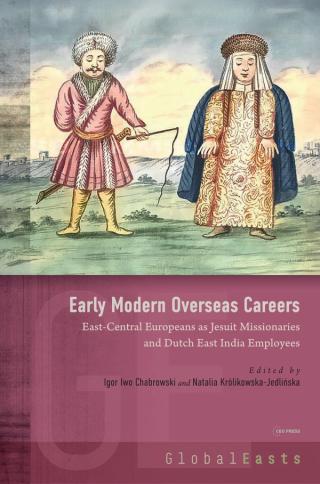- Series editors
Jie-Hyun Lim, Sogang University
- Editorial Board
Cemil Aydin, University of North Carolina, Chapel Hill, USA
Monika Baar, European University Institute, Italy
Jonathan Bach, New School, USA
Manuela Boatca, University of Freiburg, Germany
Katja Castryck-Naumann, GWZO, Germany
Igor Iwo Chabrowski, University of Warsaw, Poland
Choi Chatterjee, California State University, LA, USA
Daniel Hedinger, Kyoto University, Japan
Kristina Jõekalda, Estonian Academy of Arts, Estonia
Hoi-eun Kim, Texas A&M University, USA
Sherzod Muminov, University of East Anglia, UK
Małgorzata Mazurek, Columbia University, USA
Ivan Peshkov, Adam Mickiewicz University, Poland
Ksenia Robbe, University of Groningen, Netherlands
Igor Stiks, FMK, Belgrade, Serbia
Thuc Linh Nguyen Vu, University of Vienna, Austria
Prof. dr. Naoyuki Umemori, Waseda University, Japan
Joanna Wawrzyniak, University of Warsaw, Poland
Daqing Yang, George Washington University, USA
Dafna Zur, Stanford University, USA
GLOBAL EASTS - CEU Press
This exciting new series provides a space for a cognitive remapping of global history and memory by disrupting the facile, Eurocentric binaries of ‘West’ and ‘East’, and ‘North’ and ‘South.’ Books in the Global Easts series will deal with entangled histories and memories of Eastern Europe and East Asia through heuristic juxtaposition. Investigating the direct entanglements of the two Easts, not via the West, will provide an effective way of deconstructing Eurocentrism. Global Easts is a “problem space” in global modernity. It is the specifically trans-peripheral problem space where the East remains underdeveloped. East Asia and Eastern Europe have been constructed and explained “through the dynamics of attraction to and repulsion from the West” or “in terms of isolation from versus exposure to the West”. The conceptual gradation of Oriental and demi-Oriental in the Global Easts depends on its distance to the “West.” The radical juxtaposition of East and East in the Global Easts series encourages an epistemological breakthrough, and in this sense, the Global Easts series is a project to problematize methodological Eurocentrism.
Disciplinary reach
The series gives space to work from scholarly communities across disciplinary borders: history, sociology, philosophy, literature, anthropology, ethnology, memory studies, global studies.
Themes
Monographs and edited volumes in the Global Easts series will deal with themes including:
- Postcoloniality/decoloniality
- Modernization/industrialization
- Intellectual interaction, heuristic juxtapositions, cross-referencing practices
- Historical imagination
- Entangled histories/entangled memories
- Global literature
- Travelogues
- Anthropological and ethnographic research
- Socialist ecumenes
- Globalization
- Self-Orientalisms
- Occidentalisms
- Holocaust
- Stalinist terrors, mass dictatorships
- Art histories

